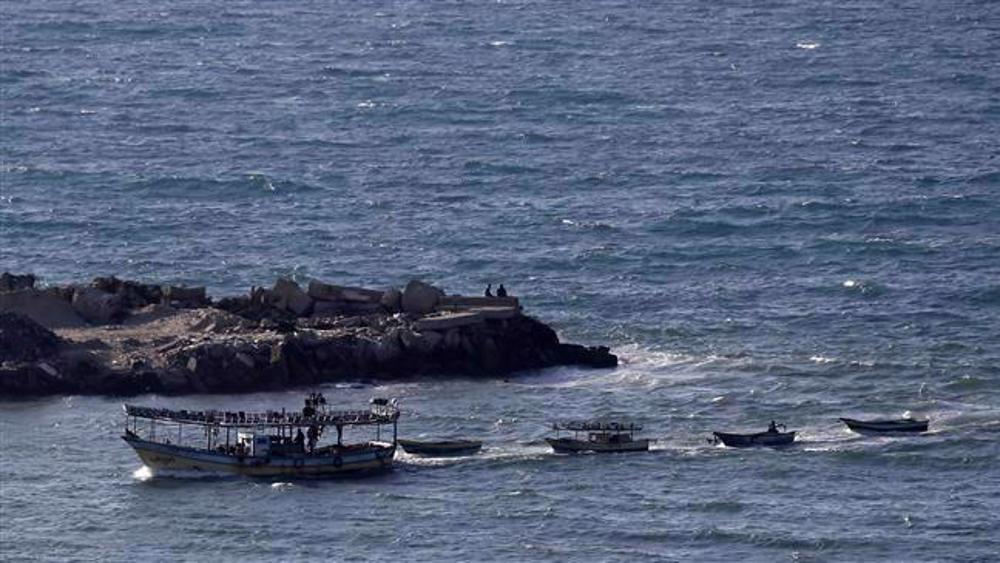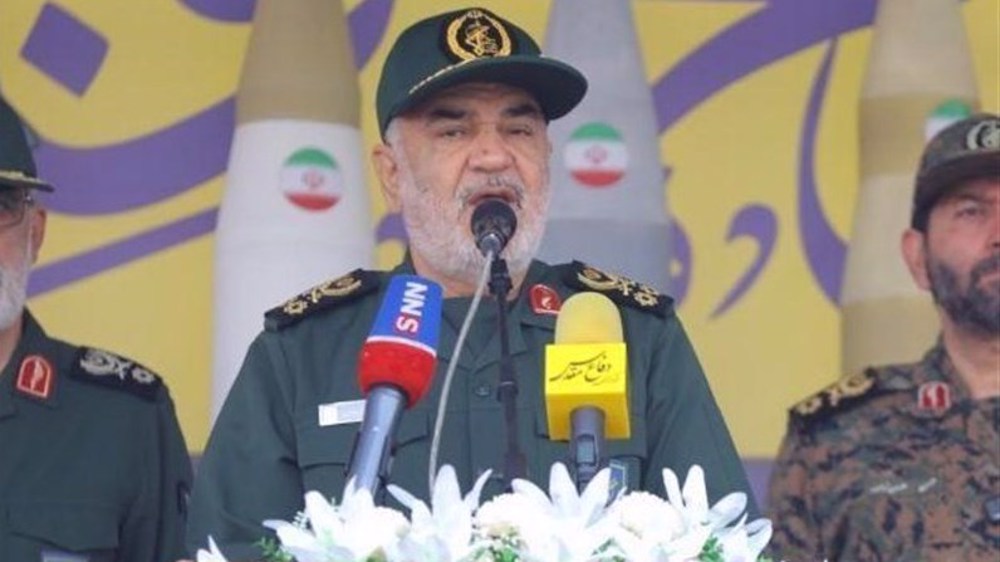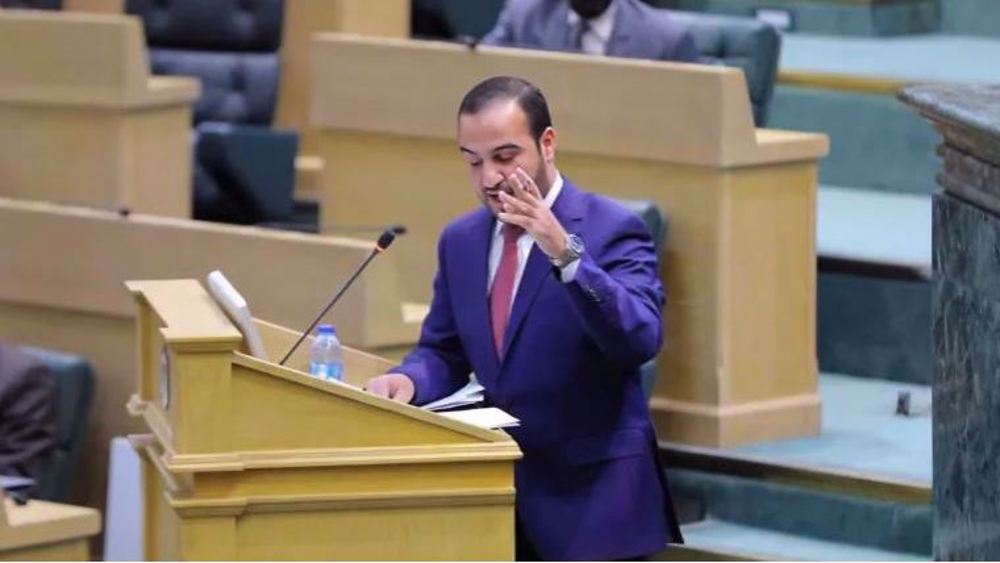Israel totally closes Gaza fishing zone, steps up aerial, land attacks
Israel has tightened its naval blockade of the Gaza Strip, entirely closing its offshore fishing zone following a night of Israeli land and aerial attacks on the besieged Palestinian enclave.
Israeli minister of military affairs Benny Gantz in a statement on Sunday ordered the fishing zone off the coast of Gaza closed until further notice, the Palestinian Information Center reported.
The closure came hours after Israeli military launched aerial and ground attacks against targets across the Gaza overnight. The Tel Aviv regime's fighter jets and tanks attacked a Palestinian military compound and underground infrastructure late Saturday.
Israel had already slashed Gaza’s permitted fishing zone. COGAT, an Israeli military body, earlier this week said the fishing zone would be halved from 15 nautical miles to eight.
Under the Oslo Accords signed in 1993, Israel is obligated to permit fishing up to 20 nautical miles, but this has never been implemented.
Israel maintains a heavy naval presence off the coast of the impoverished Palestinian enclave, severely affecting the livelihood of some 4,000 fishermen and at least 1,500 more people involved in the fishing industry.
Over the past few years, Israeli forces have carried out more than a hundred attacks on Palestinian boats, arresting fishermen and confiscating boats.
The Palestinian movement Hamas had vowed to step up its resistance against on the Israeli military after two children were injured during nighttime Israeli strikes on Gaza on Friday.
The Israeli military has said that the raids were carried out in response to a number of alleged incendiary balloons sent from Gaza to the occupied territories. Tel Aviv said it targeted "naval force compound, underground infrastructure and observation posts" belonging to Hamas.
Flying fiery kites and balloons has become a new mode of protests by Gazans since March 2018, when the Tel Aviv regime began a crackdown against anti-occupation demonstrations near the fence separating Gaza from the Israeli-occupied land, killing and injuring many people.
The Israeli regime every so often launches strikes against positions in the blockaded enclave, accusing the resistance groups there of launching attacks.
Israel this week also banned fuel from entering the Kerem Shalom crossing between the southern Gaza Strip and the occupied territories until further notice.
Gaza's economy has suffered from years of Israeli and Egyptian blockades.
The Gaza Strip has been under an Israeli land, air and sea blockade since June 2007, which has caused a decline in the standard of living as well as unprecedented levels of unemployment and unrelenting poverty.
Israel has launched three major wars against the enclave, killing thousands of Gazans each time and shattering the impoverished territory’s already poor infrastructure.
VIDEO | Former FBI agent criticizes US Congress for 'outright corruption'
IRGC chief urges Muslim countries to cut aid routes to Israel
'New chapter in cooperation': Iran, Venezuela sign new MoUs
Jordan sentences former lawmaker for supporting Palestinian resistance
Basij volunteer forces hold massive drills in southwestern Iran
Israeli war criminals 'not welcome', US city says after ICC ruling
US vetoing of Gaza ceasefire resolution ‘disgraceful’: Iran’s UN envoy
VIDEO | IAEA adopts anti-Iran resolution tabled by E3












 This makes it easy to access the Press TV website
This makes it easy to access the Press TV website